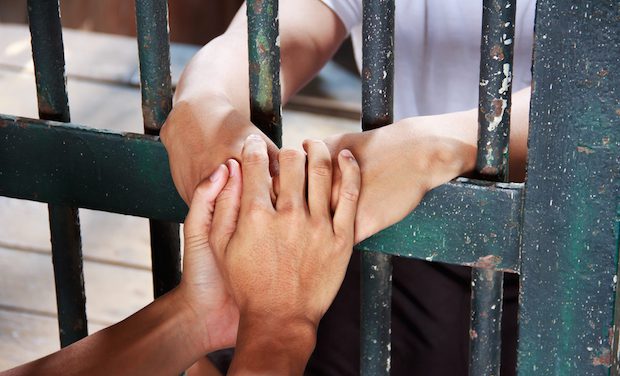Why We Need Criminal-Justice Reform

Mass incarceration in America has lifted our prisoner count to 2.3 million, dwarfing that of all other nations; of federal prisoners, only 13 percent are serving time for violent crimes, while 72 percent are imprisoned for nonviolent offenses. Altogether, Americans are held in thousands of prisons and jails. Millions more are former prisoners or arrestees. Criminal-justice reform relates to much more than occasional killings by rogue policemen: the whole over-criminalization incentive structure driving long prison sentences and the re-sentencing of parolees in the judicial system needs publicizing and reform. The multibillion-dollar cost of policing and jailing nonviolent offenders also takes money that our cities (or taxpayers) could well use for civilized betterment.
Our judicial system has some serious flaws, particularly its quest for guilty verdicts and incarceration. I first learned about the drive for convictions through an experience with a former employee. He was arrested for getting in a fight with a drunken resident in a business I once owned. He had called the police himself after hitting the man with his nightstick during a fight. (We knew the man was drunk from blood tests at the hospital where the man was treated and released the same night.) The defense attorney, paid by the city, strongly urged my man to plead guilty, telling him that he would easily get off with probation and a few hours of community service. My employee said that then he would then have a criminal record. But the attorney warned that if he went to court he risked spending years in jail. Later I learned that the attorney was paid little more to fight the charges than to have her client offer a plea bargain. I said to her that I would double whatever legal fees she earned from the court if she would defend him in pleading innocent. She agreed.
After three court dates, the other man never appeared, so my employee’s lawyer asked the prosecutor to drop the case, but the prosecutor refused. I saw that the prosecutor wanted to collect convictions to help her own career. Finally, after the other man missed yet another court appearance, the prosecutor agreed to drop the case. That’s how I saw first-hand how the judicial system obtains so many guilty verdicts, which eventually result in so many imprisonments. The system is called “meeting and pleading,” as described by former Baltimore police officer Michael Wood. And now, with computerized records, once a man has a conviction he won’t be hired by all sorts of businesses. In fact, businesses risk being sued for “negligent hiring” if an employee turns out to be a former felon and commits another crime at work.
Reason has published about related problems with sex-offender registration. Through plea bargaining, thousands of men are on sex-offender lists that don’t distinguish violence by strangers against minors from such “crimes” as urinating in public or exposure. Reason notes that according to Human Rights Watch, some states’ sex-offender lists include teenagers who had consensual sex with other teens. In Pennsylvania, 14-year-olds were subject to lifetime listing as sex offenders. The idea behind lifetime penalties for being a sex offender was the impression that most such acts were violently committed by strangers upon small children and that such offenders represented a continuing menace. But in practice the punishment can mean a lifetime of stigma and economic ruin inflicted upon people who pose no such risk and have not committed any comparable act.
There are many other issues of over-criminalization. The Washington Post hired former Reason blogger Radley Balko, author of the Rise of the Warrior Cop, to cover a host of other criminal-justice reform issues.
Reform is beginning, but it is very slow. Both Republicans, who used to support mass incarceration, and Democrats, often beholden to police and prison-guard unions, have not been quick to respond. Pat Nolan, formerly of Justice Fellowship, told me how the Obama Justice Department dawdled for years to put forward regulations to enforce the Prison Rape Elimination Act, passed in 2003, because of prison-guard union opposition. Solitary confinement is another issue crying out for reform but also one that provides extra jobs for guards, as I was told by Jim Ridgeway, who runs SolitaryWatch.com. A very important new group is Right on Crime, a conservative coalition supported by the Heritage Foundation, tax activist Grover Norquist, Pat Nolan, and politicians such as Newt Gingrich. It’s now focusing on civil asset forfeiture, another egregious government abuse created in the name of fighting crime.
Slowly but certainly, Americans across the political spectrum are beginning to question and reform the criminal-justice system, even rethinking the panic-stricken measures of the past 30 years that led to so much imprisonment, so many ruined lives, and the runaway growth of police powers.
Jon Basil Utley is publisher of The American Conservative.
Comments